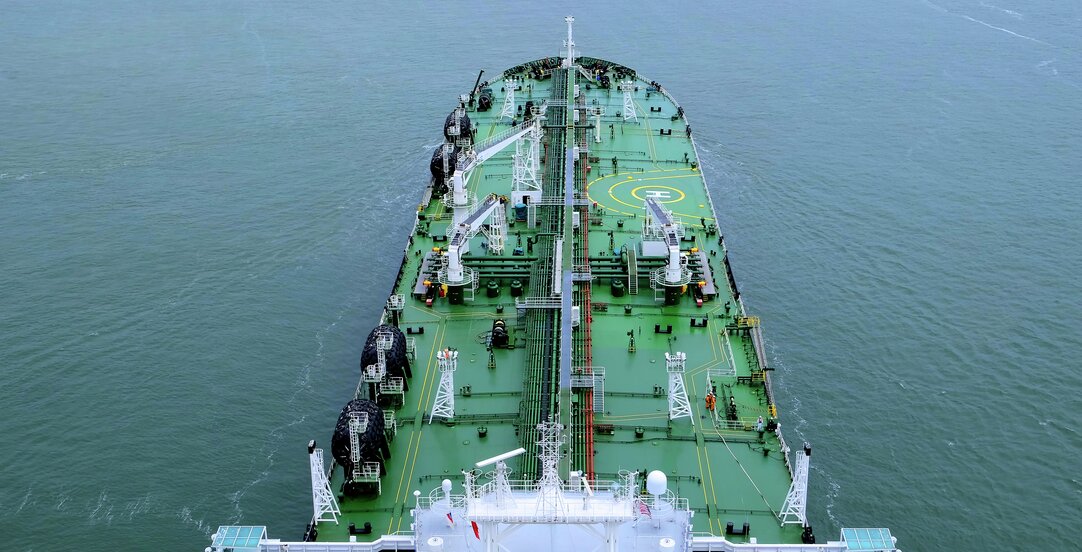MUR Shipping v RTI: "reasonable endeavours" in the age of sanctions

If a contract requires payment in a certain currency and, as a result of sanctions, payment cannot be made in that currency, does the obligation to use "reasonable endeavours" to overcome a force majeure event (such as payment issues relating to sanctions) require payment in a different currency? The English Commercial Court recently held that it does not.
Lesetid 6 minutter
We are frequently asked about managing contractual obligations when new sanctions come into force, or when a party's circumstances change. The English High Court has recently provided guidance on when alternative performance can be required as a reasonable endeavours obligation in circumstances of force majeure created by sanctions. While this case concerns payment currency in particular, the principles discussed are likely to have a wider application and interest, particularly in light of the ongoing developments in Ukraine. It also highlights the need to consider the inclusion of dedicated sanctions clauses in long term contracts.
Background
RTI Ltd, as “Charterers”, and MUR Shipping BV, as “Owners”, were parties to an amended GENCON form of contract of affreightment (“COA”), which provided for monthly shipments of bauxite from Guinea to Ukraine.
The key terms of the COA for present purposes were: (i) a requirement to make freight payments in US Dollars, which would be routed through a correspondent bank in New York, and (ii) a force majeure ("FM") clause enabling a party to avoid liability in specified circumstances. The FM clause did not specifically mention sanctions, but did refer to "any rules or regulations of governments or any interference or acts or directions of governments, [and]… restrictions on monetary transfers and exchanges". The FM clause contained other conditions, including that the parties use reasonable endeavours to overcome the FM, and that the FM would affect cargo operations.
On 6 April 2018, OFAC applied sanctions to RTI's parent company and added them to the US' Specially Designated Nationals and Blocked Persons List. Owners were concerned that further performance of the COA could expose them to risk of sanctions and non-payment, in particular due to the US nexus created by payments in USD.
Owners had noted internally that the COA did not contain a dedicated sanctions clause. As such, they needed to fall back on the FM clause, and sent an FM notice to Charterers. Owners subsequently refused to nominate ships to load the cargo under the COA. The FM notice was rejected by Charterers.
Owners' position was that the imposition of sanctions created a practical barrier to payment in USD, and that they could not be expected to load and discharge the cargo without receiving payment. It is well known that US banks are extremely wary of processing transactions that involve sanctioned persons, and that such transactions can be delayed or blocked as a result. As such, Owners argued that an FM event had occurred (and that it continued until 23 April 2018, when OFAC issued a relevant General License).
It is however not unusual for parties to seek to agree alternative arrangements, where this would not violate sanctions, and in addition the FM clause required reasonable endeavours to be made to perform. The Charterers’ position was that it was reasonable for payments to be made in EURO and that in any case, cargo operations were not prevented by the sanctions. During the 6-23 April 2018, Charterers obtained alternative tonnage to carry the cargo of bauxite. Charterers then brought a claim in arbitration for the additional costs incurred in securing this extra tonnage.
The Arbitrator's Decision
The Tribunal found in Charterers' favour, ruling that while sanctions were covered by the FM clause, the reasonable endeavours obligation in the FM clause required Owners to accept payment in an alternative currency. From the Tribunal's perspective, it was relevant that Owners could have adopted this alternative with no detriment to themselves (the Charterers had offered to bear any additional costs or exchange rate losses in converting EURO to USD). The Tribunal did not consider that there was a bright line distinguishing the variation of contractual terms from other commercial endeavours.
Owners appealed to the English High Court under Section 69 of the Arbitration Act 1996, in particular on the ground that reasonable endeavours does not require a party to change the terms of its contract.
The High Court Decision
The Owners' appeal was successful. The Court ruled that the exercise of reasonable endeavours in the FM clause did not require the Owners to accept a non-contractual payment in an alternative currency. The Court also rejected the Charterers' alternative argument that the sanctions imposed did not directly affect cargo operations.
Mr Justice Jacobs found that there was a contractual right to receive, and a contractual obligation to make, payment in USD. This right and obligation formed part of the parties’ bargain. The exercise of reasonable endeavours only required endeavours "towards the performance of that bargain; not towards the performance directed towards achieving a different result which formed no part of the parties’ agreement".
Comment
This case related to payment obligations, but it has obvious application to other situations that many industry stakeholders face in connection with the developing situation in Ukraine, and need to consider in terms of future geopolitical risk.
English law does not imply a general concept of force majeure into contracts, and there are limited circumstances in which a party can amend or terminate the bargain it has made. For this reason, any provisions that the parties may need for flexibility, exemptions from liability, or alternative performance should be clearly set out in the contract. As such, while there are generally accepted rules of interpretation, each case will turn on the specific wording of the provisions drafted by the parties and the relevant factual matrix.
In this context, we are often asked what the scope of reasonable endeavours is, whether in FM clauses or elsewhere. One way to look at reasonable endeavours is to say that they fall short of good faith or best endeavours obligations, both of which can require a party to incur significant expense or to pursue multiple courses of action. This is particularly relevant in shipping and trading deals, which will usually involve a complex chain of commercial contracts, such that a change in one requires changes throughout, and where many obligations are qualified by the concept of reasonable endeavours (for example in relation to nominations and rescheduling). Although what is reasonable must always be reviewed in the factual and contractual context, this case provides reassurance that parties should not generally be expected to alter substantive contractual obligations (for example places for loading/discharge or the acceptable specification range for a commodity).
We frequently advise clients to consider at the time of contracting whether alternative performance will be permissible, or indeed required, if circumstances change. This can be especially important in longer term contracts, or for contracts involving critical elements in a supply chain. In the sanctions context, we may for example consider provisions as to whether payment in an alternative currency is acceptable (which would have avoided the situation in this case), diversion to alternative ports, or obligations to seek licenses/permits from the relevant authorities. In other contexts, it may be relevant to use bespoke FM clauses, or to consider the inclusion of hardship provisions. In each case, the goal is to keep trade flowing and to prevent costly disputes.
